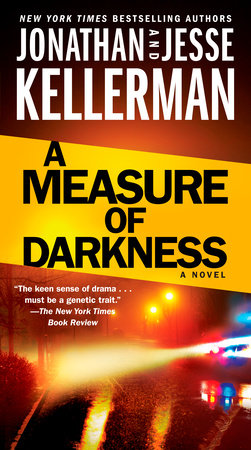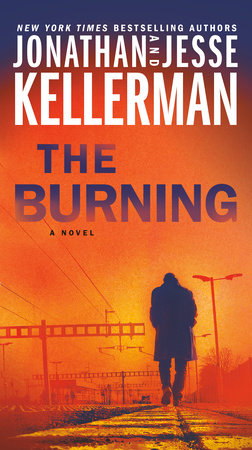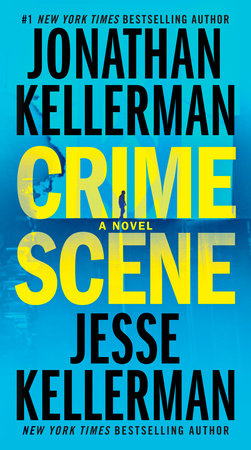Excerpt
A Measure of Darkness
CHAPTER 1
Friday, December 21
They were going to have a nice evening together. Hattie had been planning for a week, since Isaiah called to tell her he was home from school. He wanted to know was it okay for him to come by and pay her a visit.
Okay? How could it not be? Hattie couldn’t remember when she’d last seen her grandson. That distressed her, both the not-seeing and the not-remembering. A year? Maybe longer. Too long, at any rate.
It got lonely. She didn’t get many visitors. People had their own lives. Her children had gone and gotten children for themselves. They’d found places in the world. That alone was proof of a life well lived.
It got lonely, though.
Curtis—Isaiah’s father, her youngest—made the drive down once a month or so. You’d think it was a thousand miles instead of forty. Hattie sometimes made up reasons to call him. The kitchen outlets did go bad a lot. Standing at the breaker box, he would remind her again in that weary patient way of his that the whole sub-panel needed replacing.
Her baby boy, graying. It must have happened at some point that she stopped scolding him and it started coming back the other way. There must have been a day.
She couldn’t remember that, either.
The neighborhood’s changing he said.
She fixed coffee and let him make his case. They were fleeing the city, pouring over the bridge. Computer people. Couldn’t be stopped. They wanted to be near the train. Ten minutes to downtown San Francisco. They paid cash. Did she know what she could get for this old place?
He took after his own father. Unsentimental.
It’s too much house for one person he said.
And where was she supposed to live, according to this plan?
With us.
Hattie snorted. I guess you didn’t ask Tina how she feels about that.
Mom, please. She’d love to have you.
He was missing the point. Change was nothing new to her. All her life she’d lived in Oakland, half those years on Almond Street, and never could she remember the scenery standing still. Now he expected her to pick up and run? What from? White folks wielding new countertops?
She’d weathered worse.
Not to say she wasn’t tempted. Most of her friends had left, passed on, or else lost their leases. Curtis wasn’t the only one trying to show her the light. Real estate agents kept calling her up, knocking on her door, sliding their slick postcards into her mailbox.
Please call me to discuss an exciting opportunity.
Once she went to put out the trash, and a young fellow in a jacket and tie appeared at her side. Hattie thought he must have been sitting in his car, waiting for her. Like an eel, darting out from the rocks to snap. He offered to bring the can down to the curb for her.
No, thank you, she could manage on her own.
He left her with a card (sean godwin, licensed realtor) and a sheet of paper listing recent neighborhood sales. On Almond Street alone there were three, including the big wreck across the street. A ruined beauty, with a cratered roof, blank window frames, walls spray-painted in wrathful scrawls. Hattie’s eyes nearly fell out of her head when she saw the price. She counted the string of zeros and expected bulldozers any day.
The buyer was a white lady, with other ideas. Plank by plank, dab by dab, the skeleton knit itself back together, grew flesh, skin, acquired a healthful glow. Hattie monitored the process through her curtains. A crew of Spanish men did the heavy work. Often, though, she saw the lady herself out there, her and her husband, or boyfriend more likely, smoking and laughing as they rolled paint, drove out a horde of raccoons. Or the lady alone, wearing overalls to hang wire for a chicken coop. Planting bamboo that rose to shut out the world.
Everything changes, nothing remains. Hattie knew that. She accepted it. Truth be told it excited her a little—the unexpected. Her husband, God rest him, called her a dreamer. She used to hide her mystery novels under the kitchen sink so he wouldn’t lecture her.
For this reason, perhaps, she harbored a particular closeness to Isaiah: he was a dreamer, too.
I might come by and see you, Grandma. Is that okay?
Was it okay.
Hattie baked a coconut cake.
Isaiah clocked her disappointment as soon as she opened the door. She’d begun moving in for a kiss, freezing as her eye picked out the metal bead snugged in the crease beneath his lower lip, as though it might sting her.
He was going to have to take the initiative. He brought her into his arms and held her against him, smelling her scalp, the floral bite of her hairspray. She felt like straw.
“Good to see you, Grandma.”
“You too, honey.”
She didn’t say a word about the stud. He did catch her staring over dinner, or maybe that was him being paranoid. On the train down, he’d thought about taking it out, but he wasn’t supposed to do that for a month or the hole could close up. He was aware of gumming up consonants—F, V, P, B—the backing clicking against his teeth. Certain foods presented a challenge. Hattie had prepared enough for ten. Chicken, beans, yams. He didn’t dare refuse. He chewed with purpose, seated beneath the portrait of Grandpa William in his starched Navy uniform.
“How are your parents?” she said.
“Fine.” His mother had seen the piercing and sighed. Isaiah. Really. “They say hi.”
“Tell me about school. What classes are you taking?”
Structure of the Family, Imagining Ethnography, Comp 2, American Cultural Methodologies. He’d settled on sociology as a major.
“Next semester I have a class on interviewing,” he said. “I’m gonna call you up.”
“Me?” She waved him away. “What for?”
But he could tell she was pleased. “You’ve seen some things,” he said.
“I’m old, you mean.”
“Grandma.”
“It’s all right,” she said. “I am old.”
She carried his empty plate into the kitchen, returning with a high cake smothered in coconut flakes and thick buttercream frosting. She fetched clean plates and a knife and bent to cut him a huge slice. He was trying to figure out how to decline when from out in the street came a deafening belch of static.
“Shit,” he said, twisting in his seat.
Hattie clucked her tongue at him.
He spread his palms on the vinyl tablecloth. His heart was going. “What was that?”
She shook her head.
He pushed back his chair, went over to the bay window, parted the curtains. The side gate of the mansion across the street was propped, and a portly, bearded white man was unloading a van, dollying a keg up a path toward the backyard.
“Someone lives there?” he said.
“A lady bought it,” Hattie said.
“What lady?”
“She calls herself an artist.”
Isaiah studied the house, its windows warm, multicolored lights outlining the eaves. As long as he could remember, the place had served as a lair for junkies and squatters. Growing up—before his parents dragged him and his sister out to the suburbs—he had been forbidden from going anywhere near it.
A second blast of static made him jump.
“She’s probably having one of her parties,” Hattie said. She tapped the plate with the back of the knife. “Eat up, honey.”
In the time it took him to consume his dessert there were four more eruptions of noise, a man’s amplified voice: Testing, one two, one two.
House music boomed.
Isaiah set down his fork. “Don’t they have any respect?”
“It’s not that bad,” Hattie said.
“Are you kidding? It’s like a bomb going off.”
“Since when did you ever hear a bomb?”
“You can’t sleep with that,” he said.
“It’ll be over by midnight.”
He goggled at her. “Midnight?”
She shrugged.
The music cut out a few minutes later, as he was setting his backpack down on the guest room bed. The silence was as startling as the noise, causing him to tense all over, and then to flood with hot relief.
He dug out his phone. Tuan had texted him an address. Isaiah replied he’d be there in thirty and went back downstairs, calling, “Yo Grandma.”
He found her hunched over the sink, skinny arms inside floppy yellow dish gloves.
“Yes, honey?”
“Hey,” he said. Faltering, because she looked so frail. “Why don’t I do that for you?”
“Guests don’t do the dishes.” She gestured toward the living room, flinging soapy droplets. “Make yourself comfortable. Jeopardy!’s on. I’ll come join you when I’m done.”
“Yeah, okay. Just,” he said, scratching at his neck, “I kind of told some friends I might meet up with them.”
In the brief interval that followed he watched an unspoken hope of hers crumble.
“But I can stay,” he said.
“Don’t be silly. You go have fun. Which friends?”
“Jalen.”
“That’s Gladys Coombs’s boy.”
He nodded. He didn’t mention Tuan, she wouldn’t approve.
“It’s nice you two keep in touch,” Hattie said.
“Yeah, for sure.”
She stripped off the dish gloves and went over to the kitchen table. Taking her pocketbook from her purse, she extracted a ten-dollar bill. “Here.”
“That’s okay, I’m fine.”
“Go on. Make an old lady happy.”
He accepted the money. “Thanks, Grandma.”
“You’re welcome. Get the key off the hook before you go.”
She presented her cheek.
He pursed his lips out far to kiss her, so that she wouldn’t feel metal.









